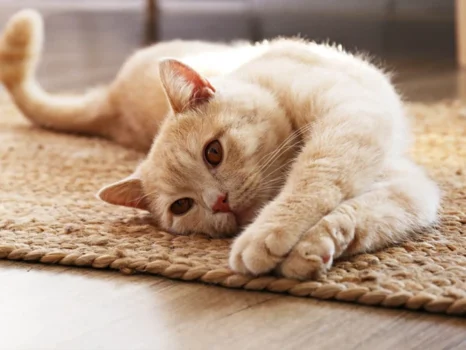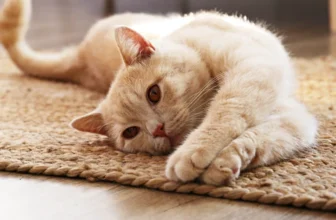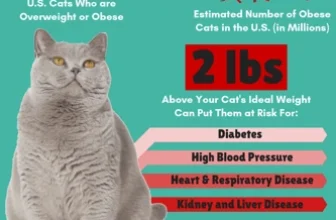As our feline companions age, they become more susceptible to certain health issues. As their caretakers, it’s important for us to take preventative measures to ensure they live a long and healthy life. However, it’s not always clear what steps we should take to prevent these issues. In this article, we will guide you through practical and effective methods to prevent common health issues in senior American Shorthair cats. From regular vet check-ups to environmental adaptations, we will cover everything you need to know to keep your furry friend healthy and happy.
Regular Vet Check-Ups
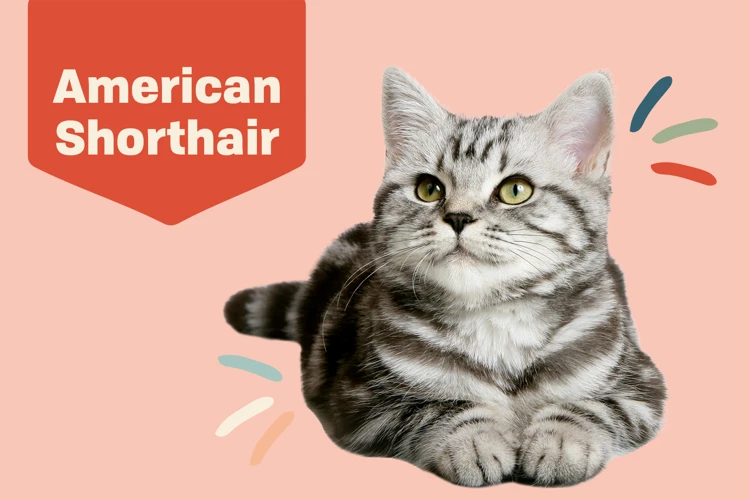
Maintaining your senior American Shorthair cat’s health is crucial for their well-being, and one of the fundamental steps in doing so is by scheduling regular check-ups with a veterinarian. Senior cats are prone to numerous health problems that require early detection and treatment. Regular check-ups should be an important part of your cat’s wellness routine to prevent and manage common health issues that may threaten their quality of life. In this article, we will discuss the benefits of regular check-ups, how often to take your senior cat to the vet, and provide tips on preventive measures to keep your furry friend healthy and happy. For more tips and advice on senior American Shorthair cats, check out our senior cat care guide.
Benefits of Regular Check-Ups
Regular check-ups are extremely important for senior American Shorthair cats and offer numerous benefits to cat owners as well. These check-ups help in early detection and prevention of various health issues and provide a baseline for the overall health of the cat. Additionally, regular check-ups can save cat owners significant amounts of money in the long run by preventing expensive treatments for illnesses that could have been easily prevented.
Here are some benefits of regular check-ups for senior cats:
- Early detection and prevention of diseases – Regular check-ups can help catch potential health problems before they become serious issues. Senior cats are particularly prone to chronic diseases such as diabetes, renal disease, and cancer. Early detection of these diseases can help to better manage them or even cure them.
- Monitoring of vital signs – During check-ups, the vet will monitor the vital signs of the cat such as heart rate, respiratory rate, and temperature. Any significant changes in these vital signs can indicate the onset of diseases or infections.
- Assessment of weight and condition – Senior cats are also prone to obesity, which can lead to many health issues such as diabetes and joint problems. During check-ups, the vet will assess the weight and condition of the cat and offer advice to help maintain a healthy weight.
- Dental examination – Regular check-ups also include a dental examination, which is important for detecting any dental problems like gum disease, oral tumors or cavities.
- Peace of mind – Lastly, regular check-ups offers peace of mind to cat owners by ensuring that their cat is in good health. It is much easier to enjoy the company of a happy and healthy cat.
If you want to know more about suitable diets for senior cats, visit our Best Diets for Senior American Shorthair Cats article. You can also learn about Senior Cat Mobility Exercises and Senior American Shorthair Litter Box maintenance in our other articles to take better care of your pet.
How Often Should You Take Your Senior Cat?
Regular vet check-ups are crucial for maintaining the health of senior American Shorthair cats. But how often should you actually take your furry friend to see the vet? The answer can depend on a few factors, such as your cat’s overall health and any pre-existing conditions they may have.
General Guidelines for Senior Cats
As a general guideline, senior cats (over 7 years old) should have a vet check-up at least once a year. However, some cats may require more frequent check-ups depending on their health status. For example, cats with chronic conditions such as diabetes or kidney disease may need to see the vet every 6 months or even more frequently.
What to Expect During a Check-Up
During a senior cat check-up, the vet will perform a thorough physical examination, which may include blood work, urine analysis, and other diagnostic tests as needed. The vet may also discuss any changes in behavior, appetite, or litter box habits that you have noticed at home.
Benefits of Regular Check-Ups
Regular check-ups provide many benefits for senior cats, including early detection and treatment of health issues, disease prevention, and overall health maintenance. Identifying and addressing health problems early on can help prevent larger health issues from developing and can ultimately lead to a longer, happier life for your furry friend.
Senior American Shorthair cats should have at least one vet check-up a year, but some cats may need more frequent check-ups depending on their health status. Regular check-ups provide numerous benefits, including early detection and treatment of health issues, disease prevention, and overall health maintenance. It’s important to discuss with your vet how often your senior cat should be seen for regular check-ups to ensure they stay healthy and happy.
| Age of Cat | General Check-Up Frequency |
|---|---|
| Under 7 years old | Once a year |
| 7-10 years old | At least once a year, but may need more frequent check-ups depending on health status |
| Over 10 years old | Every 6 months, or more frequently if they have chronic health issues |
Diet
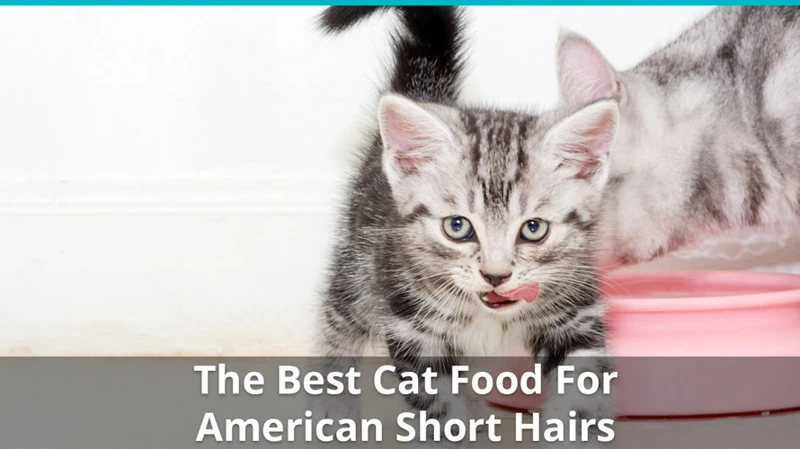
As our furry friends grow older, their diet needs also evolve. Proper nutrition is essential to keep our senior American Shorthair cats healthy and happy. With a plethora of options available, it can be perplexing to find the right diet plan. In this section, we will discuss the importance of suitable nutrition for senior cats and how to transition to a new diet. Let’s dive in and explore the best option to keep your beloved cat healthy and active.
Suitable Diet for Senior Cats
As your American Shorthair cat reaches their senior years, it’s essential to adjust their diet to accommodate their changing nutritional needs. Here are some tips on creating a suitable diet for senior cats:
1. Focus on Quality Protein
Senior cats require more protein in their diet to maintain their muscle mass. Choose high-quality protein sources, such as chicken, turkey, and fish, to meet their increased protein needs.
2. Lower the Fat Content
As cats age, they tend to become less active, which can lead to weight gain. Choose cat food with lower fat content to prevent weight gain and reduce the risk of developing obesity-related health problems.
3. Increase Fiber Intake
Senior cats often have digestion problems, which can lead to constipation. Adding fiber to their diet can have a positive impact on their digestive system. Look for cat foods that contain beet pulp or psyllium husk, as these are good sources of fiber.
4. Avoid Fillers and By-Products
Senior cats require a diet that is rich in nutrients and free of fillers and by-products. Look for cat food brands that can guarantee the quality of their ingredients.
5. Incorporate Omega-3 Fatty Acids
Omega-3 fatty acids are beneficial for senior cats, as they can help improve their cognitive function and heart health. Look for cat foods that contain fish oil or flaxseed, both of which are good sources of omega-3s.
By following these tips, you can create a suitable diet for your senior American Shorthair cat that will help them stay healthy and happy throughout their golden years. Keep in mind that a healthy diet is just one aspect of ensuring your cat’s overall well-being. Regular veterinary check-ups, proper exercise, and good hygiene habits are also essential.
How to Transition to a new Diet?
Transitioning your senior American Shorthair cat to a new diet can be challenging but there are several steps that you can take to ease the process. Sudden changes can lead to digestive issues and your cat may refuse to eat altogether. Before making any changes, it’s important to consult with your veterinarian to determine if a dietary switch is necessary and what type of diet is best for your cat.
Here are some tips to gradually transition your cat to a new diet:
| Step | Action |
|---|---|
| Step 1 | Introduce the new food gradually: Begin by mixing a small amount of the new food with your cat’s usual food. Start with a ratio of 1:4 (new food: old food) then gradually increase the amount of new food over a period of 7-10 days until the old food has been completely replaced with the new one. |
| Step 2 | Monitor your cat’s appetite: Keep an eye on your cat’s eating habits during the transition, make sure they are still eating enough. If your cat isn’t eating, consult with your veterinarian. |
| Step 3 | Choose the right time: Choose a time when you can closely monitor your cat for any signs of digestive issues. Avoid making dietary changes when you are going to be away from home for an extended period of time or during times of stress, such as when introducing a new pet or moving house. |
| Step 4 | Stick to a routine: Cats thrive on routine, so feeding them at the same time every day can help with the transition. Make sure that the new food is being offered at the usual feeding times and in the same feeding dish. |
| Step 5 | Provide plenty of water: Wet food can help combat dehydration in your cat. Your cat should also have access to fresh water at all times to help flush out any toxins and aid digestion. |
Remember that every cat is different and the transition process may take longer for some than others. If you notice any signs of digestive upset or your cat’s appetite doesn’t return to normal after the transition period, consult with your veterinarian.
Weight Management
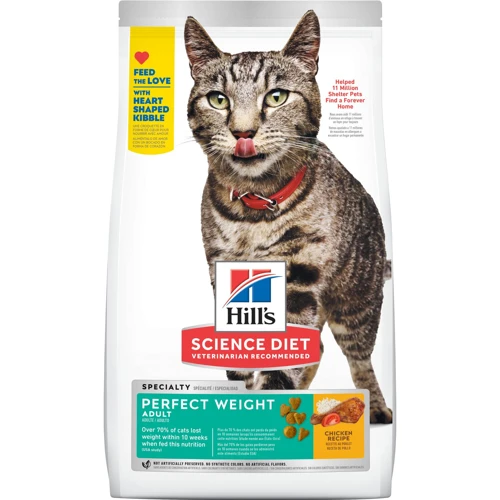
A common problem amongst senior American Shorthair cats is obesity, which can lead to a range of health issues. Managing your cat’s weight can be a challenging task, but it is crucial to their overall well-being. In this section, we will discuss the importance of weight management for senior cats and provide you with tips on how to help your cat lose weight and maintain a healthy weight.
How to Monitor Your Cat’s Weight?
Monitoring your cat’s weight is crucial for maintaining their overall health. As cats age, they may become less active and their metabolism may slow down, which can lead to weight gain and associated health problems. Here are some ways to monitor your senior American Shorthair cat’s weight:
| Weigh-ins | Appearance | Food Intake |
|---|---|---|
| Regularly weighing your cat with a digital scale can help you track any changes in weight. You can also bring your cat to the vet for a weigh-in. | Take note of your cat’s body condition score, which assesses their overall body shape and condition. You should be able to feel your cat’s ribs with minimal fat covering, but not see them. | Measure your cat’s food portions to ensure they are getting the appropriate amount of food. Monitor their eating habits and make sure they are not overeating or under-eating. |
| Record your cat’s weight in a journal or digital app to track their progress over time. | Look for any physical changes in your cat’s body, such as a rounder belly or a lack of mobility. | Feed your cat a high-quality, age-appropriate diet and avoid excess treats and table scraps. |
| A sudden change in weight, either gain or loss, can be a sign of an underlying health issue and should be discussed with your veterinarian. | Regular grooming can also help you monitor your cat’s weight, as matting or overgrown nails can make movement uncomfortable and lead to less activity. | Encourage your cat to engage in light activity, such as play or short walks, to help maintain their weight and overall health. |
By actively monitoring your senior American Shorthair cat’s weight, you can identify any potential health issues early and maintain their overall health and well-being.
Best Ways to Help Your Cat Lose Weight
Helping your senior American Shorthair cat lose weight can be challenging but it’s important to regulate their weight to prevent health issues. Here are some best ways to help your cat lose weight:
| Method | Description |
|---|---|
| Controlled Diet | Switching to a diet with controlled portions and lower calories can help your cat shed extra pounds. Consult with your veterinarian to determine the best diet for your senior cat. |
| Meal Frequency | Divide your cat’s meals into smaller, more frequent feedings throughout the day. This can help regulate their metabolism and prevent overeating. |
| Avoid Free-Feeding | Eliminate free-feeding and instead, set specific feeding times for your cat. This can prevent overeating and regulate their weight. |
| Interactive Feeding | Use interactive feeding toys that require your cat to work for their food. This can increase their physical activity and help with weight loss. |
| Increased Exercise | Increase your cat’s physical activity by providing them with toys and games that encourage play. Playtime can keep your cat active and help them lose weight. |
| Gradual Changes | Make any diet or routine changes gradually to avoid causing stress for your cat. This can help them adjust better to their new diet and exercise routine. |
In addition to these weight management techniques, regularly monitoring your cat’s weight and discussing any concerns with your veterinarian is crucial. Obesity and weight gain can lead to serious health issues in senior cats, so it’s important to take action and help your cat maintain a healthy weight.
Exercise
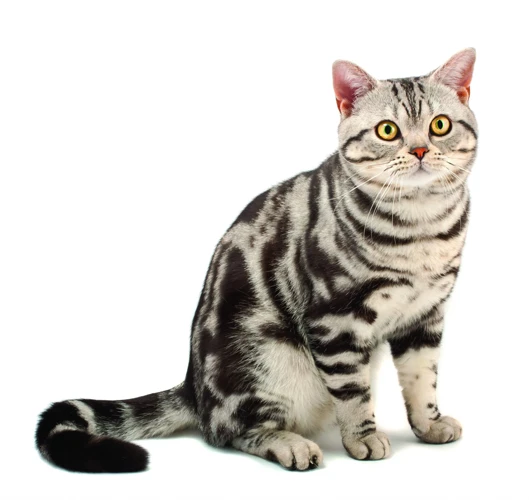
As senior American Shorthair cats age, exercise becomes increasingly important for their overall health and wellbeing. While they may not be as active as they once were, incorporating some level of physical movement into their daily routine can have numerous benefits. From maintaining a healthy weight to enhancing joint flexibility, regular exercise can help your feline friend age gracefully. However, it is important to choose the right kind of exercise and monitor your cat’s activity level to prevent injury or exhaustion. In this section, we’ll explore the importance of exercise for senior cats and provide tips on how to incorporate it into their daily routine.
Importance of Exercise for Senior Cats
As our beloved American Shorthairs grow older, regular exercise becomes increasingly important for maintaining their overall health and mobility. Exercise is crucial in keeping your senior cat’s joints limber and flexible, preventing obesity, and reducing the risk of common health issues, such as heart disease and diabetes.
Senior cats who lead a sedentary lifestyle are at a higher risk of developing various health problems. Exercise helps maintain their muscle mass, so they can keep their independence longer. A lack of exercise can cause their muscles to become weak and stiff, which can make movement and day-to-day activities much more difficult.
To ensure that your senior cat gets enough exercise, you can take them on daily walks around the neighborhood or play interactive games with them. You can also engage them in activities that promote mobility, such as climbing their cat tree or chasing a catnip toy.
Here are some senior cat exercise tips to keep in mind:
- Start slow: If your cat hasn’t been active in a while, start slow and gradually increase the amount of activity they do.
- Short but frequent: Exercise done in short but frequent sessions is more effective than one long session.
- Supervision: Supervise your senior cat’s exercise routine to ensure they do not overdo it and get hurt.
- Modify: Make necessary modifications to your home to make it more activity-friendly for your senior cat, such as providing non-slippery surfaces for them to move around on.
By giving your senior American Shorthair the proper amount of exercise, you can help them lead a happy and healthy life in their golden years.
The Right Kind of Exercise for Senior Cats
As cats age, it’s important to adjust their exercise routine to accommodate their changing health needs. Here are some exercises that are suitable for senior American Shorthair cats:
- Gentle Playtime: Playtime is a great way to get your senior cat moving, but it’s important to be gentle. Avoid strenuous activities that require jumping or running. Instead, opt for playing with toys that your cat can bat or chase at a slow pace.
- Interactive Toys: Interactive toys that encourage your cat to move and play are a great option. Toys like laser pointers or feather wands can provide mental stimulation and light exercise.
- Suitable Environment: Make sure your senior cat has an environment that is safe for them to move around in. Consider getting ramps or stairs to help them get on and off elevated surfaces, such as the couch or bed.
- Slow and Steady: Introduce any new exercises slowly and steadily. Start with short exercise sessions and gradually increase the intensity as your cat becomes more comfortable.
Remember to always monitor your senior cat while they exercise and consult with your veterinarian if you have any concerns.
Dental Health
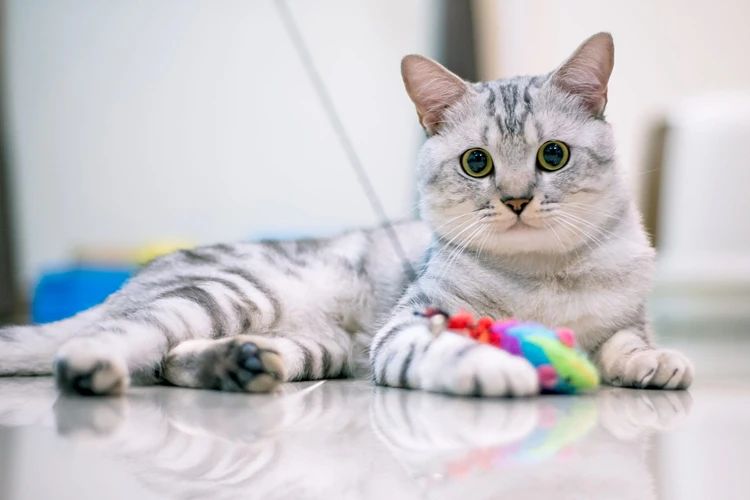
Ensuring good dental health is important for the overall well-being of cats, especially for Senior American Shorthair cats. Yet, dental problems are one of the most common health issues in cats. As cats age, they become more susceptible to dental issues that can cause discomfort and pain. It’s crucial to pay close attention to the oral hygiene of your Senior American Shorthair cat. In this section, we’ll delve into common dental problems faced by senior cats and provide practical tips to maintain their dental health.
Common Dental Problems in Senior Cats
As cats age, dental problems become more common. This is because the wear and tear on their teeth over the years can cause decay, infection, and other issues. It’s important to watch out for signs of dental problems in your senior American Shorthair cat and seek veterinary care if necessary. Here are some of the most common dental problems in senior cats:
- Gingivitis: This is inflammation of the gums, which can be caused by a buildup of plaque and tartar. Signs include red, swollen gums, bad breath, and drooling.
- Tooth resorption: This is a painful condition where the enamel of the tooth starts to dissolve, exposing the sensitive dentin underneath. Signs include difficulty eating, drooling, and pawing at the mouth.
- Periodontal disease: This is a more serious form of gum disease where the supporting structures of the teeth, including the gums and bones, become infected and damaged. Signs include red, swollen gums, bad breath, loose teeth, and difficulty eating.
- Oral cancer: This is a rare but serious condition where tumors can develop in the mouth. Signs include swelling, bleeding, and difficulty eating.
If you notice any of these signs in your senior American Shorthair cat, it’s important to schedule a vet appointment as soon as possible. Your vet may recommend a dental cleaning, extractions, or other treatments to address the problem and prevent further damage. Additionally, regular dental check-ups can help catch problems before they become more serious.
How to Keep Your Cat’s Teeth Healthy
Keeping your senior American Shorthair cat’s teeth healthy is vital to their overall health. Follow these steps to ensure your cat has strong, clean teeth:
- Regular Brushing: Brush your cat’s teeth with a soft-bristled toothbrush and specially formulated cat toothpaste at least 2-3 times a week. Start by getting your cat used to the taste and sensation of toothpaste on their teeth. Gently work up to brushing all their teeth in a circular motion, focusing on the gum line.
- Dental Chews: Dental chews can help reduce plaque and tartar buildup on your cat’s teeth. Look for chews that have earned the Veterinary Oral Health Council’s seal of approval. However, be cautious as some of these chews can be high in calories.
- Dental Diets: Some cat foods are formulated to promote dental health. These diets are designed to keep teeth and gums healthy by minimizing the accumulation of tartar and bacteria. Talk to your veterinarian to see if a dental diet is right for your senior cat.
- Professional Cleanings: Even with regular brushing and dental care, senior cats may still require professional teeth cleaning. Your veterinarian can perform a thorough cleaning of your cat’s teeth under anesthesia. This will help remove any buildup that couldn’t be removed at home.
Remember, dental care for your senior American Shorthair is a critical aspect of their overall health. Regular dental care can help prevent dental disease and reduce the risk of other health issues that could affect your cat’s quality of life.
Joint Health
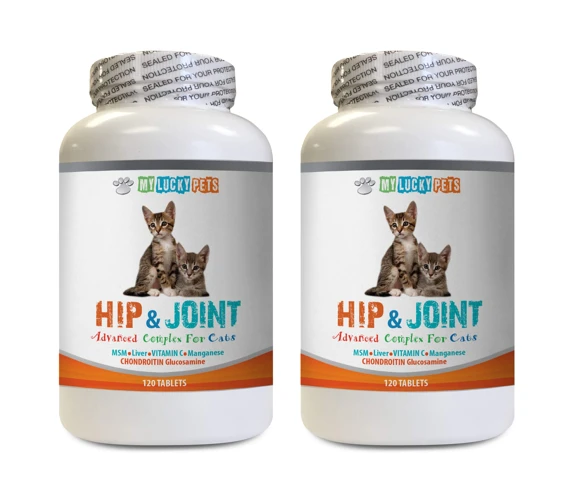
Keeping your senior American Shorthair cat healthy and comfortable is a top priority as your furry friend ages. One area of concern is their joint health, which can deteriorate over time and cause your cat to experience discomfort or reduced mobility. That’s why it’s important to take steps to promote healthy joints and prevent common joint problems. By incorporating simple adjustments and supplements, you can help your senior cat feel their best. Here are some tips to ensure your beloved feline remains active and happy.
Common Joint Problems in Senior Cats
As cats age, they become susceptible to various joint problems which can have a significant impact on their functionality. Arthritis is one of the most common joint problems in senior American Shorthair cats, where the joints become inflamed, resulting in pain and stiffness. Hip dysplasia is another prevalent joint problem where the hip joint doesn’t develop correctly causing painful joint inflammation. Spondylosis is a spinal cord condition that occurs when the cartilage in the spine hardens and the bony spurs form. This condition often leads to spinal cord compression and consequently discomfort. Another joint problem is patellar luxation, resulting in the displacement of the kneecap which can be painful causing hinderance in mobility. Osteoporosis, a condition that results from the weakening of the bones, also affects the joints as it leads to fractures and further complications in movement. Lastly, rheumatism is a joint disorder in senior cats that causes swelling and pain in the joints.
It’s crucial for cat owners to familiarize themselves with these joint problems in senior cats to provide the necessary assistance and prevent further complications which can hamper their daily lives.
Supplements to Promote Joint Health
As your American Shorthair cat ages, joint problems such as arthritis become a common issue. To promote joint health and maintain their mobility, there are several supplements that can be added to their diet. Here are some common supplements and their benefits:
| Supplement | Benefits |
|---|---|
| Glucosamine and Chondroitin | These supplements work together to reduce inflammation and promote the growth of healthy joint tissues. |
| Omega-3 Fatty Acids | Omega-3 fatty acids have anti-inflammatory properties that are helpful for reducing joint inflammation and pain. They also support overall joint health by promoting flexibility and mobility. |
| Methylsulfonylmethane (MSM) | MSM is a naturally occurring substance that improves joint health by reducing inflammation and pain. It also supports overall joint health by promoting the growth of healthy joint tissues. |
| Antioxidants | Antioxidants like vitamin C and E help to reduce inflammation in the joints and protect them from further damage caused by free radicals. |
It is important to note that supplements should be used in addition to, not as a replacement for, traditional veterinary care. Be sure to consult with your veterinarian before adding any supplements to your cat’s diet, as certain supplements may interact with medications or have negative side effects. Additionally, it is important to always follow dosage instructions carefully and to monitor your cat’s response to the supplement closely.
Stress Management
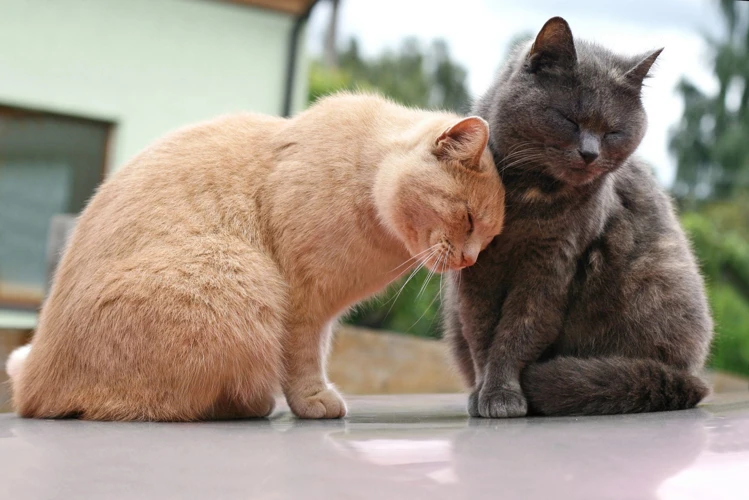
Cats are susceptible to stressors just like humans, and senior American Shorthair cats are no exception. Stress can lead to a variety of health issues, including behavioral problems, digestive issues, and even a weakened immune system. It’s important for cat owners to be aware of the potential stressors affecting their furry friend and take appropriate measures to manage them. In this section, we’ll explore the various sources of stress in senior cats and offer tips on how to help reduce their impact.
Sources of Stress in Senior Cats
As they age, senior American Shorthair cats may become more sensitive to stress, which can negatively impact their health. Understanding the sources of stress can help identify potential problems and prevent them from escalating. Some common sources of stress in senior cats include:
- Changes in routine: Cats are creatures of habit, and any significant change to their daily routine can be stressful. This could include a change in feeding time, a new litter box location, or the addition of a new pet to the household.
- Lack of stimulation: Senior cats may spend more time sleeping and less time playing than their younger counterparts. However, they still need mental and physical stimulation to maintain their wellbeing. A lack of stimulation can lead to boredom and stress.
- Pain: As cats age, they may experience joint pain or dental issues. This pain can cause stress and anxiety, and it’s important to address any potential sources of pain quickly.
- Loneliness: Some senior cats become more attached to their owners as they age and may experience separation anxiety when left alone for long periods of time.
- Litter box issues: Older cats may require more frequent litter box changes or may struggle with mobility issues that make it difficult to access the litter box. This can lead to stress and frustration for the cat.
- Medical issues: Chronic medical conditions can be a significant source of stress for senior cats. It’s important to monitor any ongoing health issues and adjust treatments if necessary to keep your cat comfortable.
By identifying and addressing these potential sources of stress, you can help ensure a happier and healthier life for your senior American Shorthair cat.
How to Reduce Stress for Your Cat
Reducing stress is crucial for senior American Shorthair cats in order to keep them healthy and happy. Here are some ways to help reduce stress for your feline friend:
| Method | Explanation |
|---|---|
| Provide a comfortable environment | Cats are very sensitive to their surroundings, so it’s important to make sure their environment is calming and comfortable. This includes providing ample hiding spaces, soft bedding, and toys to play with. |
| Create a routine | Senior cats thrive on routine, so establish a consistent schedule for feeding, playtime, and sleep. |
| Reduce noise | Loud noises can be upsetting to senior cats, so try to keep their environment as quiet as possible. You can also use white noise or calming music to create a peaceful atmosphere. |
| Introduce new things slowly | Senior cats can be sensitive to change, so introduce new people, animals, or objects slowly and gradually to avoid overwhelming them. |
| Use pheromone products | There are pheromone products available that can help reduce stress in cats, such as sprays or diffusers that mimic the pheromones that cats naturally produce to feel calm and safe. |
| Provide mental stimulation | Boredom can contribute to stress in cats, so provide toys and activities that challenge their minds, such as puzzle feeders or laser pointers. |
By implementing these stress-reducing methods, you can help ensure that your senior American Shorthair cat is happy, relaxed, and healthy.
Environmental Adaptations
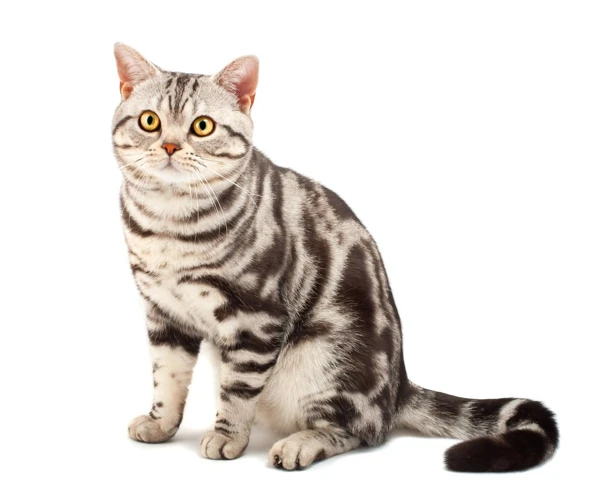
As our beloved American Shorthair cats age, their needs begin to change. Creating a comfortable and safe environment for senior cats is critical to preventing health issues. This includes adapting the home to cater to their specific needs. By carefully considering their physiology and behavior, we can make simple changes that will have a significant impact on their quality of life. Let’s explore some practical environmental adaptations that will help our senior American Shorthair cats age gracefully.
Modifications to Make at Home
As your senior American Shorthair cat ages, it is important to modify your home environment to ensure their safety and comfort. Here are some modifications that you can make:
- Provide Easy Access: Senior cats may struggle with mobility, so make sure they have easy access to their litter box, food, and water. Consider placing litter boxes on each floor of your home, providing a ramp to help them climb onto the couch or bed, and using low-sided dishes to make eating and drinking easier.
- Eliminate Hazards: Remove any potential hazards such as loose wires or cords, sharp objects, toxic plants, or anything that your cat can accidentally ingest. Also, consider gating off stairs or areas of your home that may be difficult for them to navigate.
- Provide Soft Surfaces: Senior cats may develop arthritis, which can make hard surfaces uncomfortable to lie on. Provide them with soft surfaces such as padded beds and blankets to help ease their discomfort.
- Use Night Lights: As cats age, their vision may deteriorate, particularly in low light. Placing night-lights around your home can help your senior cat find their way around and prevent any accidents.
- Lower High Perches: Senior cats may struggle to jump up or down from high perches such as window sills or shelves. Consider lowering these perches or providing steps to make it easier for your cat to access them.
By making these modifications to your home, you can ensure that your senior American Shorthair cat is safe, comfortable, and happy as they age.
How to Ensure Your Senior Cat Feels Comfortable
As cats age, they may require adjustments to their environment to ensure they’re comfortable. Here are some ways to ensure your senior cat feels comfortable:
| Provide a Cozy Bed | Invest in a comfortable bed that your cat can rest in. Older cats can have joint and muscle pain, so a soft bed can provide relief. |
|---|---|
| Offer Easy Access to Resources | Place food and water bowls, litter boxes, and other resources where your cat can easily access them. This can include ramping or steps to reach elevated areas, like a bed or window seat. |
| Keep Your Home Clean | A clean home is crucial for a senior cat’s health. Clean litter boxes daily, vacuum regularly, and bathe your cat as needed. |
| Provide Adequate Heat | Senior cats can get cold easily, so provide a warm space for them to relax. This can include a heated bed, blankets, or a space heater. |
| Minimize Noise and Stimuli | Excessive noise and activity can be stressful for senior cats. Create a calm environment by minimizing noise and limiting visitors. |
| Adjust for Mobility Issues | If your senior cat has mobility issues, make necessary adjustments to make their life easier. This can include placing rugs or traction mats on slippery surfaces, or providing a litter box with low sides. |
By following these tips, you can ensure your senior cat feels comfortable in their environment, which can lead to improved quality of life. Remember, as your cat ages, they will need extra care and attention, and making these adjustments can help them live their best life.
Senior Cat Hygiene
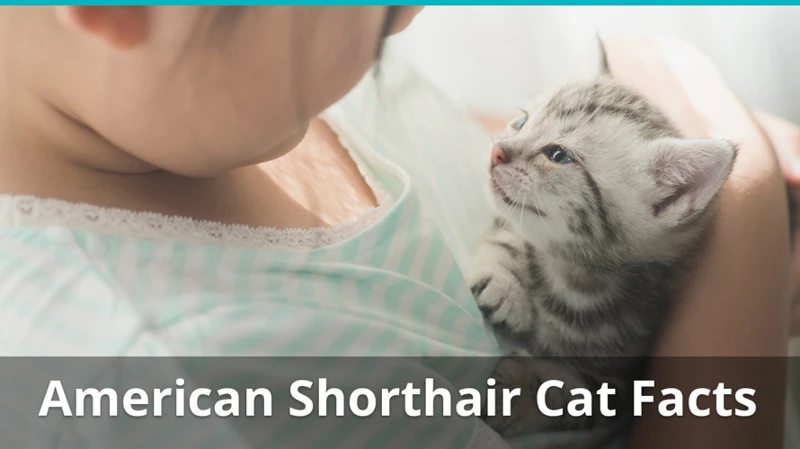
As cats age, it becomes more challenging for them to maintain their hygiene without assistance. Ensuring your senior cat’s proper grooming and hygiene is crucial to their overall health and well-being. Maintaining good hygiene can help prevent a range of health issues, including infections, skin diseases, and dental problems. In this section, we’ll discuss how to manage your senior cat’s hygiene needs so that you can keep them happy and healthy for years to come.
Importance of Grooming for Senior Cats
As cats age, their grooming habits may change, and they may require more assistance in maintaining their hygiene. Regular grooming is crucial to keeping senior cats healthy, happy, and comfortable. Here are some reasons why grooming is important for senior cats:
| Reasons to groom senior cats: | How grooming helps: |
|---|---|
| 1. Prevent matting: | Regular brushing can help prevent matting, which can be painful and lead to skin infections. |
| 2. Reduce hairballs: | Grooming can help reduce the number of hairballs a senior cat produces by removing excess hair that would otherwise be ingested during self-grooming. |
| 3. Maintain skin health: | Grooming can help maintain healthy skin by removing dirt, debris, and dead skin cells, which can contribute to skin irritation and infection. |
| 4. Promote circulation: | Grooming can help promote circulation and distribute natural skin oils, which can keep the coat shiny and healthy. |
| 5. Check for lumps and bumps: | Grooming provides an opportunity to detect any lumps or bumps that may require veterinary attention. |
Proper grooming practices for senior cats include regular brushing to prevent matting and hairballs, as well as ensuring that their claws are trimmed and their ears and teeth are clean. If your senior cat is unable to groom themselves, you may need to assist them with brushing and bathing. Using gentle grooming tools and products designed specifically for cats can help make the experience comfortable and enjoyable for your senior feline companion.
How to Help With Grooming
Grooming is an essential part of a senior American Shorthair cat’s health, but as they age, they may not be able to groom themselves as effectively as they used to. As a result, owners should help with grooming as needed.
Brushing: Brushing your cat regularly can help prevent matting, hairballs, and skin irritation. Use a soft bristle or rubber brush, and be gentle if your cat has joint pain. Brush against the direction of hair growth to remove loose fur.
Bathing: Most cats do not need regular baths, but if they become dirty or have trouble grooming themselves, a bath may be necessary. Use a cat-specific shampoo and be careful not to get water in their ears. Be sure to dry them thoroughly afterward, as older cats are more prone to chill.
Nail Clipping: Older cats may not wear down their nails as quickly as younger cats, so you should trim their nails every 2-3 weeks. Use cat-specific nail clippers, and avoid cutting the quick (the pink part of the nail that contains blood vessels).
Ear Cleaning: Cats generally do not need their ears cleaned regularly, but if you notice a buildup of wax or dark discharge, clean the outer ear with a damp cotton ball or pad. Never insert anything into their ear canal.
Eye Care: Senior cats may develop tear staining or discharge around their eyes. Use a damp cloth to wipe away debris and avoid harsh chemicals. If you notice excessive tearing or redness, consult your veterinarian.
Dental Care: Brushing your cat’s teeth is essential to prevent dental issues. Use a soft-bristled toothbrush and cat-specific toothpaste. Start slowly and be patient, gradually increasing the length of brushing sessions.
By helping with your senior American Shorthair cat’s grooming needs, you can improve their quality of life and keep them healthy. Be sure to consult with your veterinarian if you notice any changes in your cat’s grooming habits or overall health.
| Grooming Type | How Often |
|---|---|
| Brushing | 2-3 times a week |
| Bathing | As needed |
| Nail Clipping | Every 2-3 weeks |
| Ear Cleaning | As needed |
| Eye Care | As needed |
| Dental Care | Daily |
Remember to always approach grooming with patience and care to ensure your senior American Shorthair cat feels comfortable and safe.
Care For Elderly Cats
As our American Shorthair cats age, their care needs may change. Just like with humans, elderly cats may experience various health challenges that require additional attention and support. It’s essential to understand how to care for your senior feline companion as they enter their golden years. In this section, we’ll dive into some tips and information on how to provide the best care for your senior cat. Let’s explore the ways to help your furry friend age gracefully and enjoy their twilight years.
Helping Your Cat With Aging Issues
As your American Shorthair cat enters their senior years, they may start to experience some age-related health issues. There are a number of things you can do to help your feline companion manage these issues and continue to enjoy a good quality of life. Here are some tips for helping your cat with aging issues:
1. Provide Easy Access to Food and Water
As your cat ages, they may develop mobility issues or arthritis that makes it difficult for them to reach their food and water dishes. Consider placing food and water bowls in easy-to-reach locations and providing a short stool or ramp to help your cat get to them.
2. Keep Your Home Safe and Comfortable
Senior cats can be more prone to falls, so make sure your home is set up to minimize potential hazards. This may include using non-slip mats on slippery surfaces, providing soft bedding for your cat to rest on, and ensuring there are no loose or frayed wires that your cat could get tangled in.
3. Provide Extra Comfort and Support
Older cats may require extra comfort and support to help them feel comfortable and secure. Provide soft blankets for them to rest on and consider using a heated cat bed to help soothe any aches and pains. Additionally, you may want to provide a quiet, peaceful space where your cat can go to escape from noise and other stressors.
4. Encourage Gentle Exercise
While senior cats may have more limited mobility than their younger counterparts, it’s still important to encourage gentle exercise to keep their joints flexible and prevent muscle atrophy. Low-impact exercises like gentle play sessions or slow walks around the house can help keep your cat active without putting too much stress on their body.
5. Consider Supplements or Medications
There are a number of supplements and medications that can help support your cat’s health as they age. Talk to your veterinarian about options like joint supplements, vitamins, and probiotics that may be beneficial for your cat.
By taking steps to help your American Shorthair cat manage age-related health issues, you can help them live a happy and comfortable life in their golden years. With a little extra care and attention, you can ensure that your senior feline companion feels loved, comfortable, and well-cared-for.
When to Seek Help
Our senior furry friends are more prone to age-related health issues, and being aware of when to seek help is crucial in providing them with the care they need to live happy and comfortable lives in their golden years. If you notice any of the following changes or symptoms, seek help from your veterinarian immediately:
- Changes in appetite or water intake: Senior cats may experience a decrease or increase in appetite or water intake, which could indicate an underlying health issue such as kidney disease or diabetes.
- Changes in behavior: Any significant changes in behavior such as lethargy, aggression, or excessive meowing may signify underlying health problems.
- Difficulty breathing: Older cats may struggle with breathing, which could be indicative of lung disease, heart failure, or other respiratory issues.
- Unusual discharge: If your senior cat is experiencing any discharge from their nose, eyes, or ears, it could signify infection, inflammation or injury.
- Changes in mobility: If your senior cat is having trouble getting around, limping, or showing signs of discomfort when being handled, it may be due to joint pain or arthritis.
- Unexplained weight loss or gain: Unintended weight fluctuations in senior cats could be due to an underlying health issue such as hyperthyroidism, dental problems, or cancer.
- Dehydration: Dehydration is an emergency condition that can cause serious health problems such as electrolyte disturbances or kidney failure.
In cases of a medical emergency, do not wait. Seek veterinary help immediately. Even if the symptoms seem minor, it is better to be safe than sorry when it comes to the health of your beloved senior American Shorthair cat.
Conclusion
In conclusion, ensuring the overall health and well-being of senior American Shorthair cats requires a comprehensive approach. Regular vet check-ups, a suitable diet, weight management, exercise, dental and joint health, stress management, environmental adaptations, senior cat hygiene, and appropriate care for aging issues are all essential components.
It is imperative to schedule regular check-ups with a veterinarian to diagnose and treat any underlying health issues early. Feeding a suitable diet with the appropriate nutritional balance for the senior cat’s needs will help maintain optimal health. Weight management is particularly important in senior cats as obesity can lead to various health issues.
Ensuring that senior cats receive the right kind of exercise and monitoring their weight are key elements in keeping them healthy. Dental and joint health, along with stress management, are crucial in preventing common health problems in senior cats. Adapting the environment to meet a senior cat’s needs, as well as maintaining proper hygiene, can help improve their quality of life.
Lastly, caring for elderly cats requires a compassionate and patient attitude. Owners should be vigilant in watching for signs of aging issues and seek professional help when necessary. With proper care, senior American Shorthair cats can lead healthy and happy lives in their golden years.
Frequently Asked Questions
What are some common health issues in senior American Shorthair cats?
Senior American Shorthair cats are prone to several health issues such as heart disease, kidney disease, arthritis, diabetes, and dental problems.
How can regular checkups help prevent health issues in senior cats?
Regular checkups can detect health issues in their early stages, making it easier to treat or manage them. It also allows the vet to examine your cat’s overall health and recommend preventive measures.
What is the best diet for senior cats?
A suitable diet for senior cats should contain high-quality protein, moderate fat, and low carbohydrates. It should also be rich in moisture, as senior cats are prone to dehydration.
What is the right amount of exercise for senior cats?
The right amount of exercise for senior cats should be low-impact and gentle. Examples include short walks, playtime with toys, and simple stretching exercises.
How can you monitor your senior cat’s weight?
You can monitor your senior cat’s weight by weighing them regularly, looking for changes in their body shape, and keeping track of their eating habits and activity level.
Why is dental health important for senior cats?
Poor dental health can lead to serious health issues such as heart disease, kidney disease, and infection. It is essential to keep your senior cat’s teeth healthy to prevent these problems.
What supplements can promote joint health in senior cats?
Supplements such as glucosamine, chondroitin, omega-3 fatty acids, and vitamin E can help promote joint health in senior cats. Consult with your vet before adding any supplements to your cat’s diet.
What are some common sources of stress for senior cats?
Common sources of stress for senior cats include changes in their routine, lack of attention, overcrowding, and environmental changes like moving to a new home.
Why is grooming important for senior cats?
Grooming is important for senior cats as it helps to maintain their coat’s health, prevent matting, remove dead hair, and stimulate blood flow.
What are some signs that your senior cat may need help with aging issues?
Signs that your senior cat may need help with aging issues include loss of appetite, changes in behavior, difficulty moving, vision or hearing loss, and changes in litter box habits.

